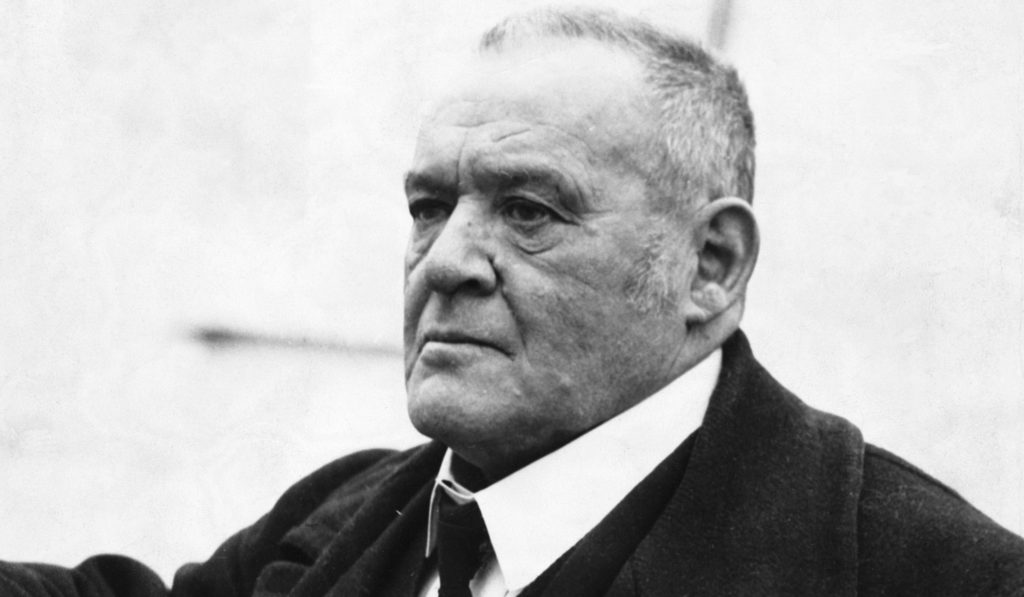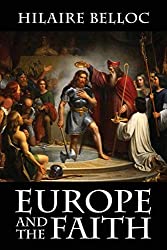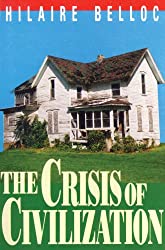
‘Dumbing-down’ …
It is a popular construction of modern English (?) that no doubt the Oxford-educated Hilaire Belloc would have found hideous.
Nonetheless, Belloc was a prophet and visionary in so many ways – not the least, in that which regards what we now call ‘dumbing down’.
Here we continue from last time, with Belloc speaking on the uncritical, unreflective nature of the ‘Modern Mind’ – as he called it reluctantly (reluctant for reasons, he will provide us below).
As I republish these thoughts from the 1920s (in Survival and New Arrivals reviewed here) – I am aware of how Belloc’s voice might be stigmatised by this Modern Mind today.
I can hear voices describing him as too ‘negative’ or ‘angry’ or ‘strident’ or ‘polarising’.
The same voices might judge that Belloc was ‘judgmental’ or ‘intolerant’.
What can one say? Belloc it seems to me was highly intolerant: inasmuch as he was intolerant of that which should not be tolerated …
And those who ‘judge others as judgmental’ may all-too-easily tolerate the intolerable.
Yes, Belloc was no doubt angry – and Our Lord was angry in the temple with the money changers and when He decried hypocrisy …
Still, like most of us, Belloc was not a saint and no doubt his anger was less than holy or fully creative at times.
However, it does seem to me that Belloc’s heart was generous, open and thus wounded and pierced.
His heart was awake to the terrible consequences of the ‘dumbing down’ of this Modern Mind, so-called.
Yes: the truly terrible consequences leading real men, women and children to despair.
We find this terrible witness in his writing: whereas people once had faith, now they are stripped of it and left only with despair …
And a major culprit for this despair is this Modern Mind that is no longer capable of thinking clearly.
Let us listen to him awhile (while noting that I myself have added the italics and broken down his paragraphs for easier reading from a computer monitor) …
The most formidable element of Main Opposition to the Faith today, is what I propose to call by its own self-appointed and most misleading title: ‘The Modern Mind.’
How misleading and false that title is, I will discuss in a moment, premising here, that I adopt it only because terms are necessary to discussion, and this is the admitted and well-known term ready to hand.
Were I to invent a new one, I should hamper my argument, for it would be unfamiliar. We note that it acts in a fashion wholly negative. It is not an attack, but a resistance.
It does not, like Anti-Clericalism, exercise an active effect opposed to religion, nor, like Nationalism, substitute a strong counter-emotion which tends to supplant religion.
It rather renders religion unintelligible.
Its effect on religion is like that of an opiate on the power of analysis.
It dulls the faculty of appreciation, and blocks the entry of the Faith. Hence its power.
We further note that it is of far more effect in the Protestant than in the Catholic culture, though common to both.
In the former it is discovered higher up in the intellectual and social scale than in the latter, and is very widespread.
In the latter it is more restricted in area and less accepted by the educated classes.
But everywhere it is of the same character, and everywhere so far as its influence extends, it fills with despair those who attempt to deal with its fearful incapacities….
And even before they can deal with it at all, they are brought up against the absence of a language to effect their end.
For, indeed … this chief adverse condition we have to examine has no suitable name.
There is no fixed term or definition for that major factor in our present difficulties, the spirit which is everywhere a main adversary of the Catholic Church, and peculiar to our generation.
Many a name has been attempted none has been found satisfactory …
That mood running through the lower masses of the modern world, of wide influence, therefore, in Europe and America … is baffling to label.
That name which its own victims use … the ‘Modern Mind’ (or ‘Modern Thought’), is a misnomer, because it ignorantly begs the question of universality.
It presupposes that those suffering from the disease are the mass of our contemporaries and those free from it a negligible exception.
Of course, it is not so.
Most modern men do not feel this spirit. No Catholic feels it—at least, no Catholic who cares to remain orthodox.
The greater part of really cultivated men outside the Catholic Church despise it; and everything traditional and solid in our civilization, notably, the peasantry of agricultural countries, leaves it to one side.
Nevertheless, as it is the word its own votaries use, I will here call it by that name—but in inverted commas.
I will speak of it as the ‘Modern Mind,’ but emphasising continually as I do so the falsity of the term.
If we call it (as some do) ‘realism,’ we are confused by the use of that term with a precise and profound meaning in true philosophy (where it signifies the Reality of Ideas—as opposed to Nominalism).
We are also confronted by the disturbing fact that, even in the conversational sense of the word, the spirit of which I speak is the very opposite of recognising the real world.
It is a spirit … soaked in ready-made phrases which have been swallowed whole, without the least examination, by minds incapable of criticism.
Were we to call it ‘Modernism,’ we should be nearer the mark, but unfortunately that word has already been assigned to a definite theological school of error, whereas the spirit of which I speak is something far more extended, vaguer and, indeed, of more effect …
We all know the thing. It is the spirit which tells us, on hearing any affirmation or hypothesis not within its own limited experience, that the affirmation or hypothesis must be false.
It is the spirit especially prone to take for granted the falsity of an unfamiliar idea, if that idea is known to have been familiar in the past.
It is the spirit which confuses development in complexity with the growth of good and the process of time with a process of betterment.
It is the spirit which appeals, as to a final authority, to whatever has last been said in a matter: ‘the latest authority.”
It is the spirit which has lost acquaintance with logical form and is too supine to reason.
It is the spirit which lives on bad science and worse history at third hand.
It is the spirit, not of the populace or of the scholars, but of the half-educated.
Ignorance forbids them to know with any thoroughness what men have discovered about these things in the past, and how certainly.
Intellectual sloth forbids them to examine an argument, or even to appreciate the implications of their own assertions.
With most men who are thus afflicted the thing is not so much a mixture of these vices as the mere following of a fashion; but these vices lie at the root of the mental process in question.
Alas – how things have continued to deteriorate!
For Belloc observes above that this Modern Mind is not truly universal. And in his own day, that would still appear to be true; we can trust his judgment.
Moreover, given that Belloc was half-French and knew Catholic culture well, we may also be struck by his observation that the Modern Mind in his day had not penetrated the Catholic sphere so effectively, whereas it was ‘higher up in the intellectual and social scale’ of Protestant culture.
Back then, he observes that the truly educated are exempt from it – such as his own Oxford peers – as well as the uneducated peasantry.
For in Belloc’s day, deeply pious peasants could still be found across Europe, in Ireland or Spain for example.
But today the Modern Mind is no longer a misnomer. It is near-universal in the West.
Today, there are very, very, very few people left with Belloc’s type of superb Oxford education.
And the products of our universities now resemble exactly what Belloc calls above: ‘half-educated’.
And there are equally very, very few pious peasants.
Yes, nearly everyone these days is subsumed into this Modern Mind. And if our hearts are truly open, truly pierced, we will be very concerned like Belloc was, for the despair, the hopelessness that hangs over the modern world.
And reading Belloc’s words above, we can only notice how the trends which he pinpointed have only accelerated.
This is partly why I suggested before that 1929 world of Hilaire Belloc was a better world than ours today – despite everything that was undoubtedly sick in that world.
For that world had not succumbed to dumbing-down nearly so badly and that world had not fallen into the same degree of despair …
We shall shortly resume with Belloc’s continued thoughts on how ‘dumbing down’ has crippled faith and bred despair …
Foreword for Monarchy by Roger Buck
Buying Books at Amazon Through These Links Gives Us a Commission. This Supports Our Apostolate. Thank You if You Can Help Us Like This!









Comments
comments are currently closed
One response to “Hilaire Belloc on ‘Dumbing Down’ and Despair”
[…] Already in the 1920s and 1930s, how acutely you diagnose this ‘dumbing-down’ of the world. […]